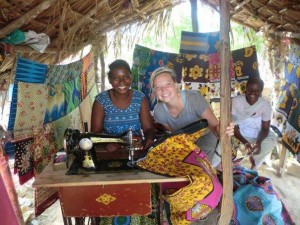2015
Excellence in Service Learning: Jacqulyn Teoh, Graduate Student L&S
Project name: Paj Ntaub: Weaving Women’s Voices Across Generations
Community Partner: Southern WI Hmong Association
The project involves female Hmong undergraduate students collecting the oral histories of Hmong women elders and creatively rewriting these narratives. The anticipated end product is a multimedia website and anthology of Hmong women writing. The collection and dissemination of these gendered refugee narratives aims are open a space for Hmong women’s voices to be heard in what has traditionally been a patriarchal community, to bridge the generation gap caused largely by loss of language, and to cultivate a Hmong writing consciousness for a culture that has primarily been oral and whose written language was only developed in the 1950s. 9 students have participated in the project, with a total of 13 narratives collected. Because the project is conducted by Hmong American students, processes of cultural assimilation and negotiation are foregrounded. Finally, the outcome of the project, the narratives, aims to augment existing Hmong American literature and foster the capacity of Hmong Americans to write, and voice, their own narratives.
Community Based Research
Excellence in Community Based Research: Riley Balikian, Jessica Buechler, Tony Castagnoli
Project Name: Oneida Community Food Center and Food System Plan
Community Partner: Oneida Nation Planning Department
Our project sought to aid further development of the Oneida Nation Community Integrated Food System (OCIFS). The OCIFS seeks to develop food sovereignty on the Oneida Nation (Wisconsin) by supporting culturally-relevant healthy food options on the reservation. This includes traditional agriculture, beef and bison farms, a cannery, food outlets, farmer’s market, etc. Our project involved an overview of the history of OCIFS, the enumeration of current food system assets in the Oneida Nation, and the design of a community food center (called the Life Sustenance Community Center) and a food system visioning plan for the reservation. We worked with and through our partners in the Oneida Nation Planning Department at all times, as well as members of the OCIFSThe project is tailored specifically to the Oneida Nation, and the deliverables are in their ownership. The main project implementers from UW were from the Nelson Institute for Environmental Studies, the Urban and Regional Planning Department, and the Landscape Architecture department. Funding and support from UW came from the School of Human Ecology and the Nelson Institute. We also worked closely with representatives from the USDA, FEED Kitchen (Madison). The deliverables from this project can be used as an example of food sovereignty measures being implemented on reservations around the United States. There is a resurgence of native food system structuring as a means of community development, and this project can provide a case study of how native people in the United States are seeking to preserve and reclaim their cultural heritage through food systems. and Tsyunhehkwa (the traditional, organic agriculture farm and cannery).
2014 Achievement of Excellence in Global Excellence
Wisconsin Without Borders- Marketplace
Who: Stephanie Veazie, Janet Niewold
Project: The Wisconsin Without Borders-Marketplace (WWB-M) is a registered student organization at the University of Wisconsin that creates meaningful opportunities for economically disadvantaged artisans in developing countries. UW students, faculty and staff work with artisan partners to design, create and sell products that are based in indigenous traditions and techniques. Stephanie has worked as a volunteer with WWB-M for 2 years and is currently completing an independent study which will help to promote the work of WWB-M in Madison, strengthen the depth of the evidence base related to micro-enterprise, and build an infrastructure for the work of WWB-M now and in the future.
2014 Honorable Mention for Global Engaged Scholarship
Freeport, IL Revitalization Initiative
Who: Class of URPL 912, taught by Alfonso Morales
For over 40 years, the UW-Madison’s Department of Urban and Regional Planning (URPL) has offered a planning workshop course to provide graduate students with training in real-world planning practice. The planning workshop also serves an outreach function by connecting communities across the upper Midwest with the resources of the University system in addressing applied planning problems, thus advancing the Wisconsin Idea. In effect, these courses combine service-learning practices with community-based research. A team of URPL Masters students were given the opportunity to join in partnership with the City of Freeport, Illinois and Vandewalle & Associates to participate in and expand upon the Freeport Riverfront Enterprise Initiative.
Infant CaRe Monitor
Who: Caleb Durante, Graduate Student
The infant CaRe monitor is a rugged, low-cost vitals monitoring solution for healthcare facilities in the developing world. Meant as an early warning device to issue alarms in the event of cardiac or respiratory abnormalities, this project was motivated by the United Nations’ Millennium Development Goals concerned with infant mortality.
